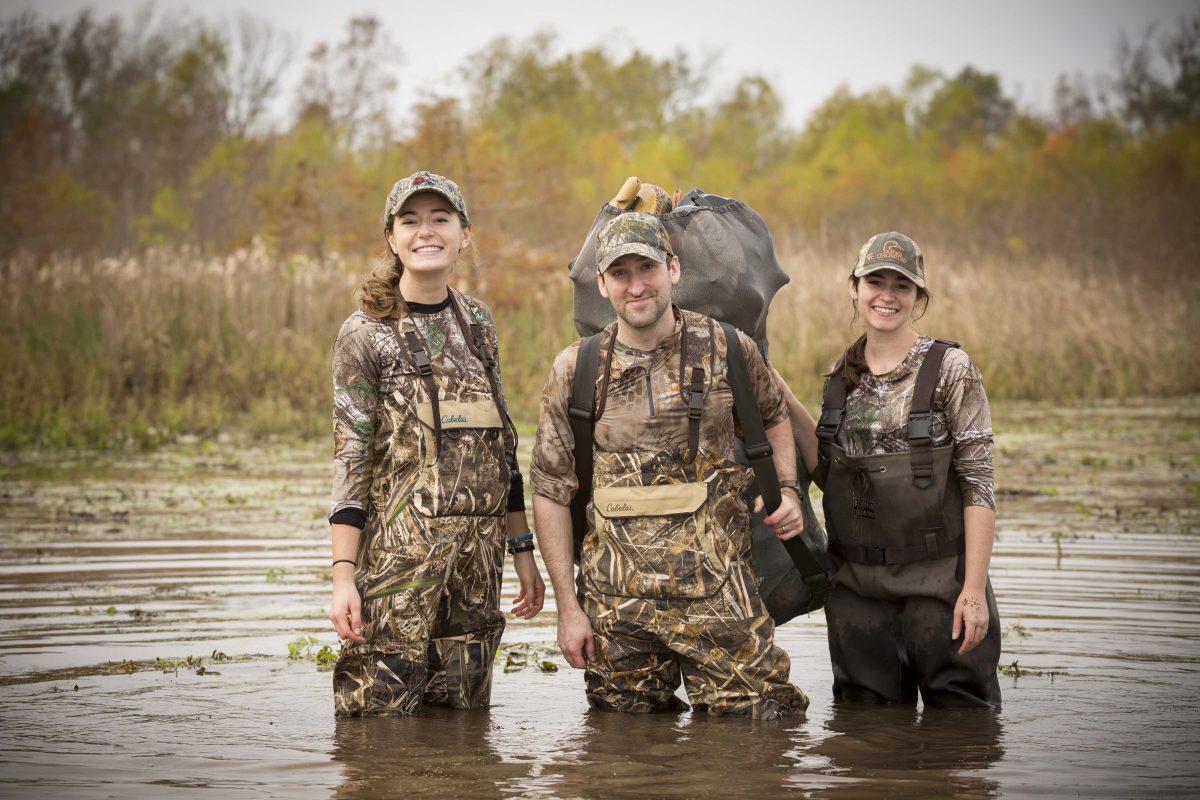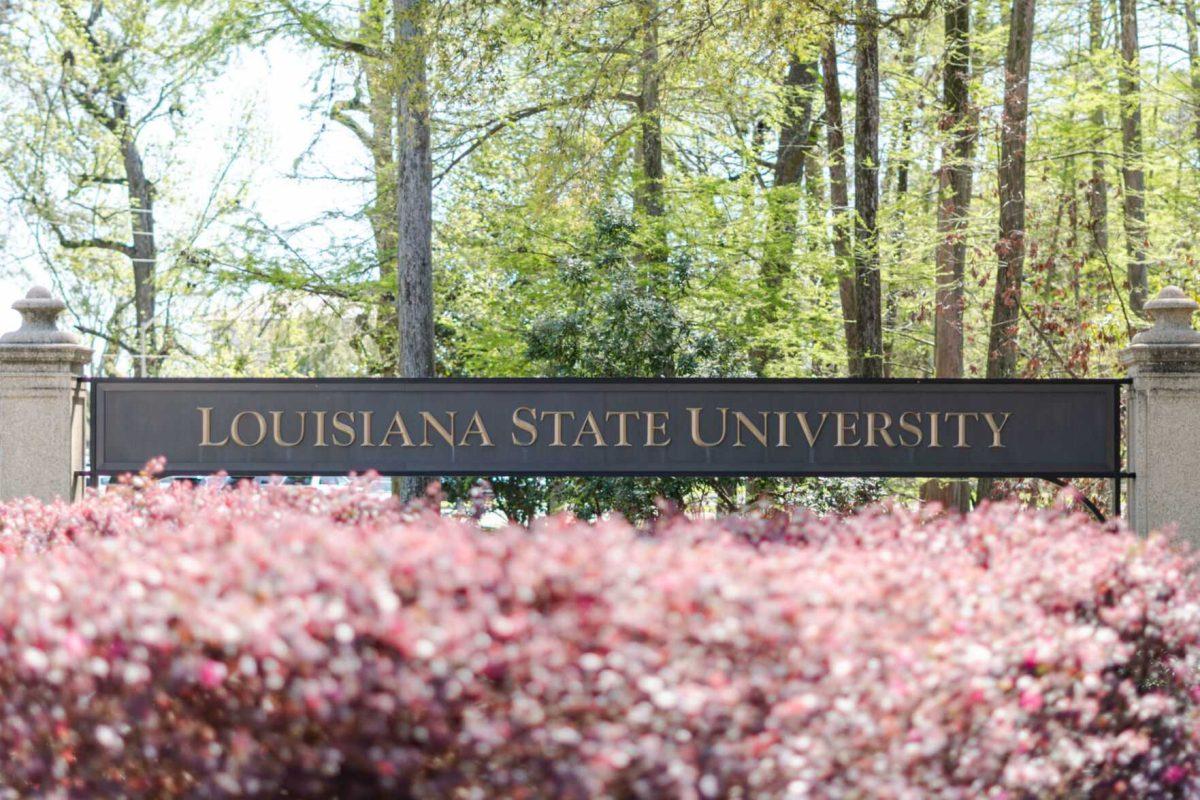Kevin Ringelman, a renewable natural resources assistant professor, has a hands-on approach to teaching wildlife ecology. During an optional field trip last fall, Ringelman and wildlife ecology and conservation biology students went to the Pine Island Hunting Club for a duck hunting trip.
The program began under adjunct associate professor Frank Rohwer and was incorporated into his Wildlife Techniques class. It is one of only two college hunting programs in the country.
Rohwer originally took his students to hunt on public land, which was difficult to access for 30 students at once. Eventually, Rohwer contacted the managers of the Oak Grove Duck Club, a private duck hunting club, and arranged for a private hunt during early blue-winged teal season.
When Ringelman began organizing the field trips, he relied on donations from private donors. Ringelman and his associates in the School of Renewable Natural Resources contacted friends at various private hunting clubs who donated hunts for the students.
“We’re only able to do this because we have these hunts donated by private individuals who have access to high-quality hunting land,” Ringelman said. “It really is on the backs of these private individuals who are donating extravagant hunts for these students for their first time.”
The field trip is offered to students enrolled in Wildlife Techniques, a senior-level class taught by renewable natural resources associate professor Bret Collier. Students learn techniques related to the management of wildlife resources, including the safe trapping, handling and marking of animals, habitat management and population dynamics.
Students who choose to attend the field trip gain firsthand knowledge of how to hunt, which is valuable information for wildlife professionals.
“We have wildlife majors who are going into a profession, especially with state or federal agencies, where a large part of their job is going to be working with hunters,” Ringelman said. “It’s important that they understand the worldview of that constituent group.”
Preparation for the field trip begins with a mandatory 10-hour hunter safety course where students learn about the safe handling of firearms and the ethical harvest of animals. After the successful completion of the course, students are eligible to go on either a duck or deer hunt, depending on their preference.
On the hunts that Ringelman participates in, he and the students typically leave for the field site on a Friday afternoon. They spend the night at a nearby lodge, where they eat a large dinner together and occasionally shoot clay targets for practice.
The next day, Ringelman and his students wake up at least two hours before sunrise and are driven by guides on shallow water boats to a duck blind in the middle of the marsh. Then, students get to experience “a morning on the marsh” by watching the sun rise and listening to the ducks overhead.
“Shooting time is half an hour before sunrise, but the birds are moving around,” Ringelman said. “You can hear hundreds of ducks whistling around — it’s an almost indescribable experience.”
Eventually, someone breaks the silence with the first shot and the hunting begins. The hunting ends at around 9 a.m., when the group takes the boats back to the lodge and returns to the University.
Students who participated in the field trips, whether they have hunting backgrounds or not, have spoken highly of their experiences.
“Everyone is really excited about the whole experience. Reviews have been entirely positive,” Ringelman said. “We’ve even had students who were uncomfortable with the idea of hunting to begin with, but they wanted to broaden their worldview. They found it to be an enlightening experience.”
Ringelman grew up in a family of hunters, but also learned from his father, who has a Ph.D. in waterfowl biology. Because of his intimate knowledge of wildlife ecology, he thoroughly enjoys organizing the field trips for students, many of whom have never hunted before.
“I not only grew up hunting, but also learning about the marsh ecosystem,” Ringelman said. “The ability to pass that on to the next generation and do it for 30 students every single year is a broad effect that we’re having. I’m really proud of it.”








